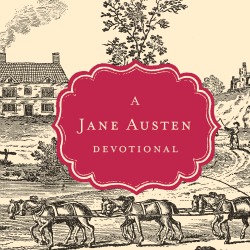J u d g i n g O t h e r s H a s t i l y
Mr. Bingley was good looking and gentlemanlike; he had a pleasant countenance, and easy, unaffected manners. His brother-in-law, Mr. Hurst,
merely looked the gentleman; but his friend Mr. Darcy soon drew the attention
of the room by his fine, tall person, handsome features, noble mien;
and the report which was in general circulation within five minutes after his
entrance, of his having ten thousand a year. The gentlemen pronounced him
to be a fine figure of a man, the ladies declared he was much handsomer
than Mr. Bingley, and he was looked at with great admiration for about
half the evening, till his manners gave a disgust which turned the tide of his
popularity; for he was discovered to be proud, to be above his company, and
above being pleased; and not all his large estate in Derbyshire could then save
him from having a most forbidding, disagreeable countenance, and being
unworthy to be compared with his friend.
Mr. Bingley had soon made himself acquainted with all the principal
people in the room; he was lively and unreserved, danced every dance,
was angry that the ball closed so early, and talked of giving one himself at
Netherfield. Such amiable qualities must speak for themselves. What a contrast
between him and his friend! Mr. Darcy danced only once with Mrs.
Hurst and once with Miss Bingley, declined being introduced to any other
lady, and spent the rest of the evening in walking about the room, speaking
occasionally to one of his own party. His character was decided. He was the
proudest, most disagreeable man in the world, and every body hoped that
he would never come there again. Amongst the most violent against him was
Mrs. Bennet, whose dislike of his general behaviour was sharpened into particular
resentment by his having slighted one of her daughters.
—Pride and Prejudice
Two wealthy gentlemen enter the picture early in Pride
and Prejudice: Mr. Bingley, pleasant and friendly; Mr.
Darcy, handsome and aloof. Though Darcy is at first
spoken of in hushed tones for his handsomeness and wealth,
his disdainful attitude toward everyone at the ball becomes
evident, and the opinion spreads like wildfire that he is “the
proudest, most disagreeable man in the world.” How fitting
that of all who are repulsed by his behavior, it is Mrs. Bennet
who takes the greatest offense—because Darcy slighted one
of her daughters.
Darcy’s character is quickly stamped with the seal of
Pride. This all-too-human tendency to judge others in haste—
to form a “prejudice” based not upon fact but on superficial
observation—is one of the central themes of the novel.
While Mrs. Bennet is clearly guilty of rash judgment, Darcy
and even Elizabeth also commit the same offense. The real
problem in criticizing and judging others is that it blinds
us to our own sin by keeping us focused on others’ shortcomings.
This ultimately prevents us from right relationship
with Christ. We are instructed, “Examine yourselves as to
whether you are in the faith. Test yourselves. Do you not
know yourselves, that Jesus Christ is in you?” (2 Corinthians
13:5 nkjv).
The next time you find yourself judging another, be
quick to first examine your own heart and behavior. Weed
out the sin you find there first. Let your example and guide
be Jesus, who always demonstrated a pure and humble heart
toward others.
Put on the new man which was created according to
God, in true righteousness and holiness.
Ephesians 4:24 nk j v

 Listen Live
Listen Live
Leave a Reply
You must be logged in to post a comment.